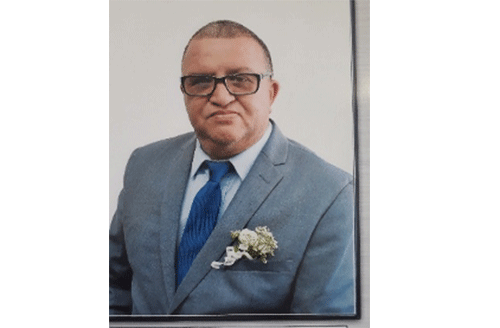Descartes’ old maxim says, “I think, therefore I am.”
Much has been said and written about thinking, thoughts and ideology. Some schools of thought have even suggested that there is a component missing, namely: “I think and belong, therefore I am, and African thinking is said to be saying: take away the thinking and simply say; “I belong, therefore I am.” Whatever maxim you subscribe to, I want to say emphatically that society needs thinkers more than ever before.
We are bombarded by ideas and thought patterns every day.
We need people who think, and who influence society to think. There is wealth that can enrich us from the experiences of ordinary people. The inability to think makes us passengers of our own lives. Many businesses, politicians and even religious entrepreneurs use people as commodities to achieve their own goals.
People who are thinkers don’t just criticise and whine; they learn. They start by questioning. Why do we do it this way? Is there a better way? What would happen if we stopped that? Why is this working? What’s the real “win” here?
Asking questions is at the heart of thinking.
Questions challenge assumptions.
Questions uncover the invisible forces, behaviours and actions.
Thinkers also notice things. Why is there no music playing? Why were their greeters so old? I wonder why they chose not to paint that sign the same colour as the rest of their signs.
According to Luthans and Luthans (2004:45), the modern environment requires flexibility, speed-to-market, effectively developing and managing employees, knowledge, experiences, skills and expertise – collectively defined as “human capital” – to become a key success factor for sustained performance.
Any society or organisation’s functioning is dependent on the people involved in it, and their ability to optimally influence, think and work towards the society’s mandate. Philips and Gully (2014:99) illustrate that if talented thinkers are not deployed where they are needed, society/organisation risks “missed market opportunities, poor services and revenue erosion.”
From the above reference, it is, therefore, clear that the modern society/organisation requires employees/people who are knowledgeable, experienced skilled thinkers, and in possession of the necessary expertise in their vocational areas in their society’s/organisations in order to optimise performance and therefore, the achievement of society/organisational goals.
We have to learn to think, give ourselves time to think, and allow people to think and let us think. Thinking must be able to lift the discourse in the nation or nations to rise higher than the personal attacks that we see to be stuck in presently.
It is frightening to listen to conversations in gatherings and workshops, especially over teatime and free time. People talk about where to do the best shopping and find more possessions. Debates over ideas and formulation of public policy are being overtaken by conversations on consumption and possessions.
Our possessions have come to possess us. We need to mobilise society to focus on something better, a bigger picture of where we want to be – a true and better life for all – or we will all degenerate into a state where we will be at war with each other.
As the South African singer Mahlathini said, “Omnye Ukhomba omnye esweni, omnye uvikela iliso lakhe” (A life of accusations, counter-accusation and personal attacks).
The writer of Proverbs says, “Where there is no vision, people perish.” When vision is lacking, people quickly degenerate into their worst selves and begin to behave strangely, sometimes in violent and destructive ways.
We can turn the tide.
We need thinkers more than ever before.
Thinkers who will generate inclusive and impactful ideas like Martin Luther King Jr did in his “I have a dream” speech.
We need thinkers who will emerge from their thinking to be the leaders that Seth Mokitimi longed for on 23 September 1937 before the Second World War:
“O, for a leader who, whilst alive to the chaos around, will exploit to the full those forces which make for stability and sanity, a leader who will admit the overhanging clouds but turn the eyes of his people to the silver linings and steady the timid and panicky by pointing them to the mountain full of horses and chariots of fire round about Elisha!” (In Gqubule 1996:54)
In conclusion, it is better to think before you ink or utter.
If you ponder on your thinking like Dr Martin Luther King Jr did, your thinking will become a dream, and your dream can become a reality even though you are already gone. Others can still make your dream come true.
The world would be a better place if we thought rather than spoke without thought or plan, and as a result, nothing will happen to the betterment of the human race.
*Reverend Jan A Scholtz is the former chairperson of the //Kharas Regional Council and former ! Nami#nus constituency councillor.
He holds a Diploma in Theology, B-Theo (SA), a Diploma in Youth Work and Development from the University of Zambia (UNZA), as well as a Diploma in Education III (KOK) BA (HED) from UNISA



